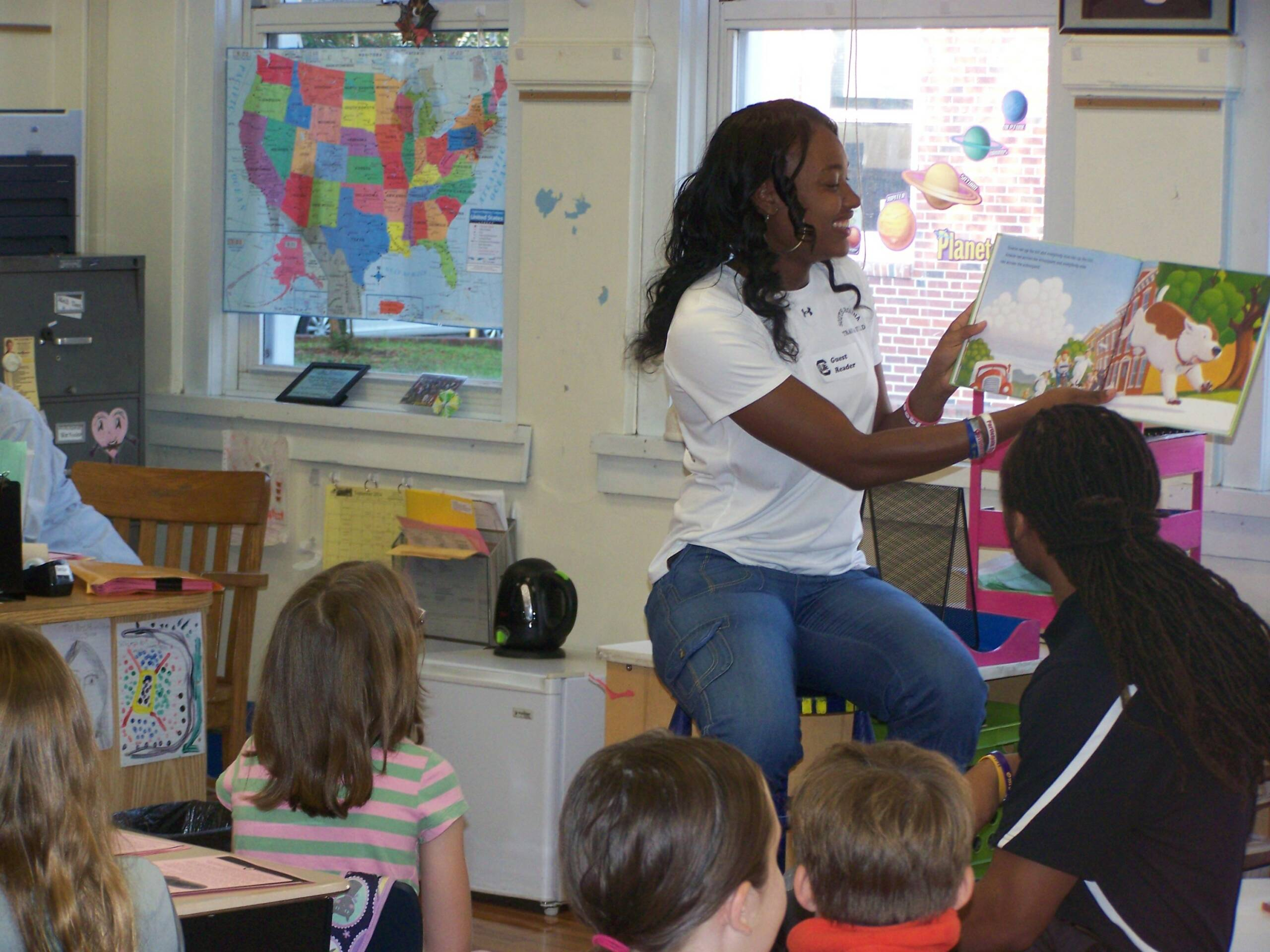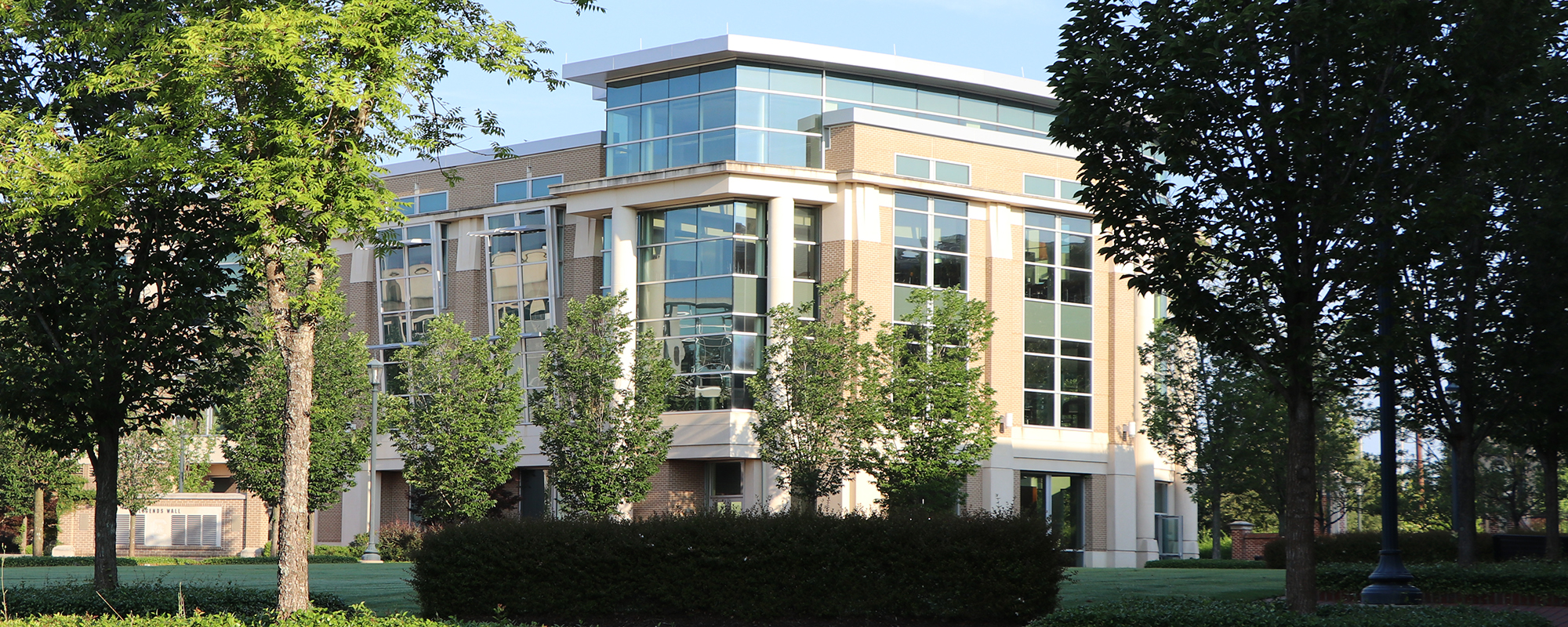
Gamecocks Set New Record with 8,860 Hours of Community Service
June 25, 2015

South Carolina student-athletes not only performed well on the field/court and in the classroom during the 2014-15 school year, but the Gamecocks also set a new school record with 8,860 hours of community service. It marks the second year in a row that the Gamecocks have broken their own record for giving back to the community after tallying 7,739 hours the previous year.
“We topped last year’s school record by over one thousand hours,” said Erica Nelson, Director of Life Skills and Community Outreach. “Almost half of our teams improved their number from the previous year. The teams, coaches and the community really just came together. More of our community partners are coming back to me saying they’ve had a good experience with our student-athletes, and they’d like them to come out again.”
The total results in an average of 17 hours of community service per student-athlete. All 21 of South Carolina’s programs engaged in community service throughout the year, with the women’s soccer team taking home top honors for the second consecutive year with the most hours of service per student-athlete.
“I think it’s really important for our team to be involved because of all the support we received from the community,” said Emily Ball, a rising senior on the women’s soccer team. “A lot of our fans are really young, so it’s important for us to set a good example. One of my favorite things was a free clinic that we put on in the spring. We have a lot of young girls who come out and are just so excited to be there.”
“We ask every team to do at least one project,” Nelson said. “That’s never been a problem. Many of our coaches have their own foundations, and we’ve been able to build off of that. The teams do it because it’s the right thing to do, but they’re also very competitive with each other. The award really seems to feed some of those competitive juices.”
Maya Evans from the women’s track and field team was the individual leader with 313 service hours, and enjoyed her experiences working with the homeless and children.
“I really love community service and helping people,” Evans said. “That’s always been a big part of who I am. Just to put a smile on somebody else’s face also brightens my day. My favorite thing that I’ve done in the last year was helping with the homeless. I helped house them at an overnight shelter and also helped feed them. I remember one guy was eating with his hands, and we gave him some silverware, and he almost started crying because he had become so used to not having any silverware to eat with. That was a really eye-opening experience for me.”
Evans added that she often forgets to log her service hours because she simply enjoys doing it.
“She definitely gets it,” Nelson said. “I think she just has a passion for it. She feels the need to give back.”
When the student-athlete is enjoying it as much as our community partner, it’s a win-win.
Erica Nelson
Whether it’s volunteering at homeless facilities, local schools, food banks, homes for the elderly, hospitals, or various other shelters, there is no short supply of organizations looking for help, and the Gamecocks are happy to fill in where needed.
“We go to Transitions, which serves meals to the homeless, on a weekly basis during the academic year,” Nelson said. “We had people serving breakfasts before they went to class, and we had members of the swimming and diving team go on their own to serve dinner on the first Sunday of every month. We have a middle school and elementary school partner, and they’ll call us up when they’re having a reading day, so we’ll send a team or a group of student-athletes over there to do that. A lot of our student-athletes go to the Ronald McDonald house to help out with some of their major initiatives.”
A common result is not only that those in need receive some assistance, but that the student-athletes receive an education outside of the classroom.
“It humbled me,” Evans said. “It made me appreciate what a lot of people take for granted ââ’¬” even simple things like food and shelter.”
“I always feel like I get a lot out of it,” Ball added. “It’s nice to gain some perspective.”
With the Gamecocks continuing to offer their services within the community, some area non-profits have come to depend on their assistance.
“More of our student-athletes are getting comfortable with going out and doing this,” Nelson said. “The first thing I’ll ask a student-athlete is, ‘What do you want to do?’ I’m not going to send them somewhere if they’re not comfortable in a particular environment. They can choose the types of places, so that helps. I’ve had some student-athletes say that they don’t do it to get credit for it, and that they do it because it’s the right thing to do.”
It’s not uncommon for multiple teams to sign up for certain larger events.
“Any time I can get a number of teams together on a project, it always works because it helps to build camaraderie,” Nelson said. “I really don’t have to do a big job selling community service.”
One way this is evident is with the football program’s annual Pigskin Poets program, where student-athletes read to area children at the Richland County Public Library.
“Pigskin Poets is really popular, and so is anything we do that involved children,” Nelson said. “The reason why I know I can always get student-athletes for this one is because normally it is set up for freshmen, but I get juniors and seniors every year that want to come back and do it again. When the student-athlete is enjoying it as much as our community partner, it’s a win-win.
“The Columbia community gives so much to all of our teams with their passion, their time and their disposable income, so we want to give back to them. It’s a good thing to do, and the student-athletes feel good after they’ve done it. I remind them that you never know the impact you are going to have on a young child or an elderly person who may feel forgotten. It means a lot. I have a lot of repeat visitors because they had a good experience the first time.”












